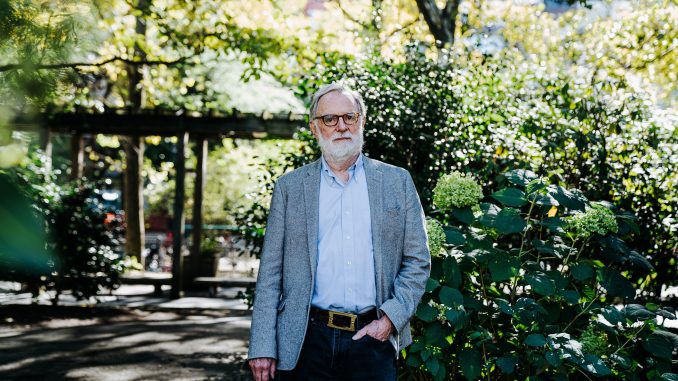
By Michela Arlia
College is a place for rigor, responsibility, and reputation. We spend (or waste, depending on who you ask) four years minimum “finding ourselves,” but not in the way you might think.
Going to a university in America is great. You have the pick of the litter as you seek to find areas in which you are most passionate. We sit through countless core requirements before landing on the major that will hopefully carry us through the remainder of our academic and employment careers. But no degree comes without hard work, and for some undergrads at New York University, they have yet to learn this important disciplinary lesson.
If you are no stranger to the month’s headlines, then you recall the recent phenomena where well respected professor Dr. Maitland Jones, a game changer in the field of organic chemistry at NYU, was fired over student complaints that his class was “too hard.”
For the sciences specifically, whether physical or applied, the existing general consensus is that there will be tough classes and as a student, you will struggle, but that is how you learn. Generally speaking, we overcome our challenges to reach an end goal we are proud of ourselves for. In this case, the goal comes in the form of an 8.5 x 11 piece of paper with fancy writing.
Now mind you, I know next to nothing about chemistry, let alone orgo, but those close to me currently involved in the field inform me that it is no walk in the park. In fact, it is supposed to be difficult by its very definition. Students who tackle this laborious subject go on to become our doctors, pharmacists, and leading scientists in the world of academia and medicine. So how exactly does making this course easier for students help them in the long run?
I don’t know about you, but I most definitely want my should-be trusted physician to have rigor in their training that proves they can treat a human body properly.
Historically, some of the hardest professions to achieve are those in the fields of science. I view these courses on the path to said professions as a rite of passage. As a psychology major with the ultimate goal of becoming licensed, I know what is expected of me not just to get through undergrad, but graduate school and beyond. I may not have liked having to sit through hours long statistics courses, but I did it because that is the requirement.
You have to go into an organic chemistry class with the mentality that you will be challenged, the same way you wouldn’t walk a mile and assume you can run the full 26.2 mile in this weekend’s marathon.
I stand by the belief that you get out what you put in, so to blame a professor for your overall work ethic seems out of touch and a borderline cop out.
Following his termination from the university, Dr. Jones courageously wrote an op-ed in the Boston Globe, “clapping back” as the Gen Z’ers would say, at the university system that once raised him on a pedestal.
Upon reading it, I applauded Dr. Jones for saying something a lot of people before him haven’t been brave enough to say – he echoed the message that students shouldn’t be coddled.
I can’t reiterate enough how important it is to uphold the rigor that comes with school and the sciences particularly, because otherwise, how can we evolve as a field and a society?
And I get that I am asking seemingly rhetorical questions here, but if the news of this professor isn’t sending you up the wall, then maybe you should stop to consider why that is.
School is hard, and granted, not for everyone. But for those that stick it out, let’s just start to be accountable for the difficult times, as they are inevitable. Feel pride that you doubled down to finish that paper by midnight, or that you pulled all nighters only to ace that midterm, because that will only make you a better student and a better person.
The whole “C’s get degrees” mantra can’t be the only thing getting you to that cap and gown.
